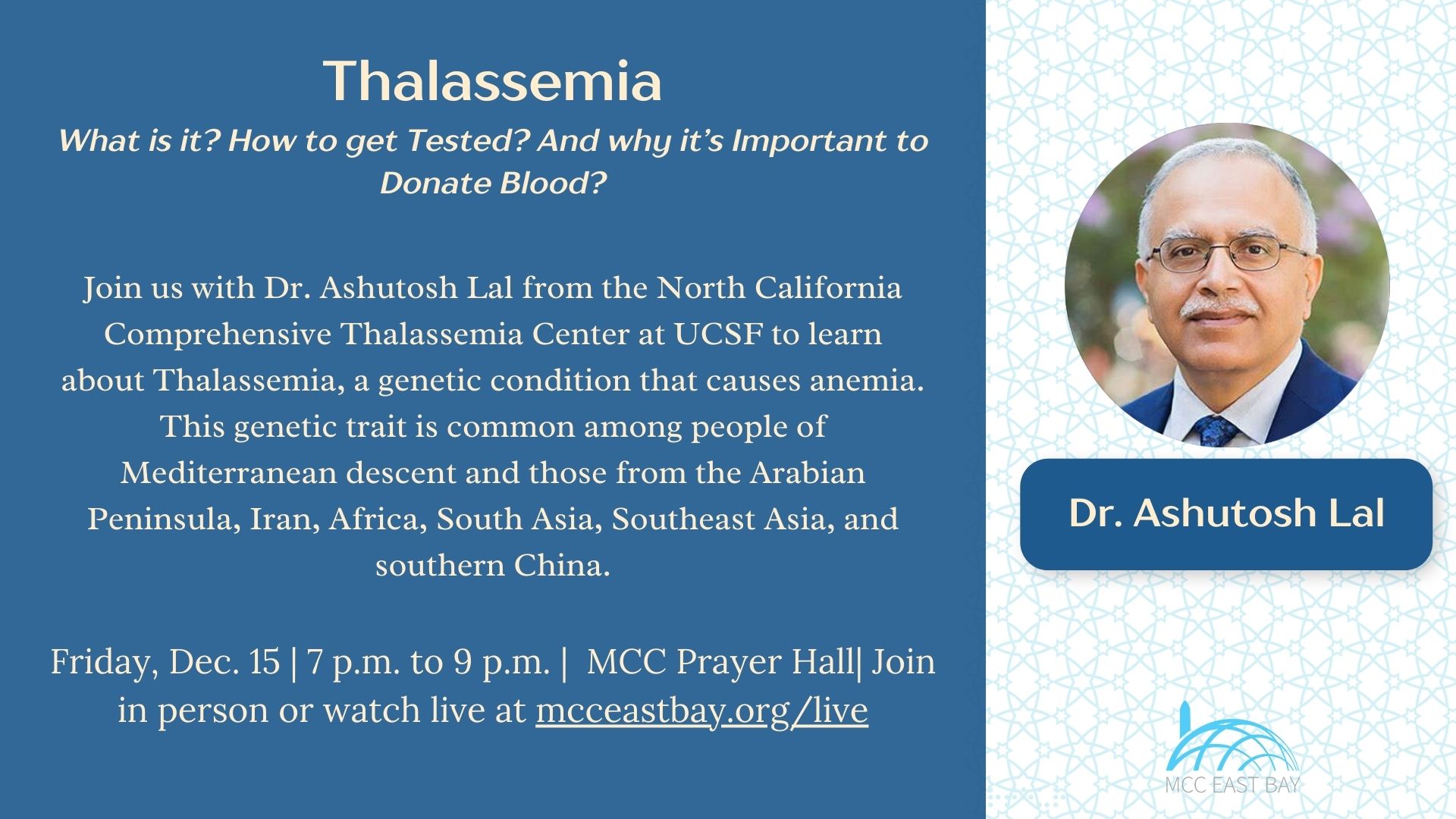Please join us for a Family Night presentation on Thalassemia by Dr. Ashutosh Lal from the North California Comprehensive Thalassemia Center at UCSF. Thalassemia is a genetic condition when the body doesn’t make enough hemoglobin, which causes anemia. The discussion will include a presentation on the condition itself, how to get tested, and the importance of donating blood.
Friday, Dec. 15 | 7 p.m. to 9 p.m. | MCC Prayer Hall | Join in person or watch live at mcceastbay.org/live
Thalassemia is common among people of Mediterranean descent and those from the Arabian Peninsula, Iran, Africa, South Asia, Southeast Asia, and southern China. In these regions, 5-10% of all people are carriers of the thalassemia trait, which means they have one normal gene and one non-working gene for making hemoglobin. Carriers have mild anemia on blood tests but are healthy and experience no symptoms. In some people, both the genes for hemoglobin can be non-working, and they develop severe anemia soon after birth. This type of thalassemia needs treatment but can be well-managed with blood transfusions and medication. Many patients can be cured of their thalassemia with transplant or gene therapy. Blood transfusion is the lifeline of patients with severe thalassemia.
Questions? events@mcceastbay.org
About the speaker:
Ashutosh Lal, MD, is a hematologist at the University of California San Francisco Benioff Children’s Hospital Oakland, Professor of Pediatrics, UCSF School of Medicine, Director of Clinical Hematology, Comprehensive Thalassemia Center and Iron Disorders Program, and the Hemoglobinopathy Diagnostics Laboratory. His academic and clinical interests are treating and researching thalassemia, iron overload, and nutrition. The Comprehensive Thalassemia Program in Oakland is the largest clinical program in the country, actively managing 350 active patients with thalassemia. Dr. Lal conducts research in the epidemiology and natural history of thalassemia, molecular diagnostics, iron quantification, micronutrient deficiencies, iron chelation, and the development of new therapies for beta-thalassemia. He is the principal investigator of the Thalassemia Western Consortium, which is supported through federal grants to improve access to specialized care for patients with thalassemia living throughout the western United States.



